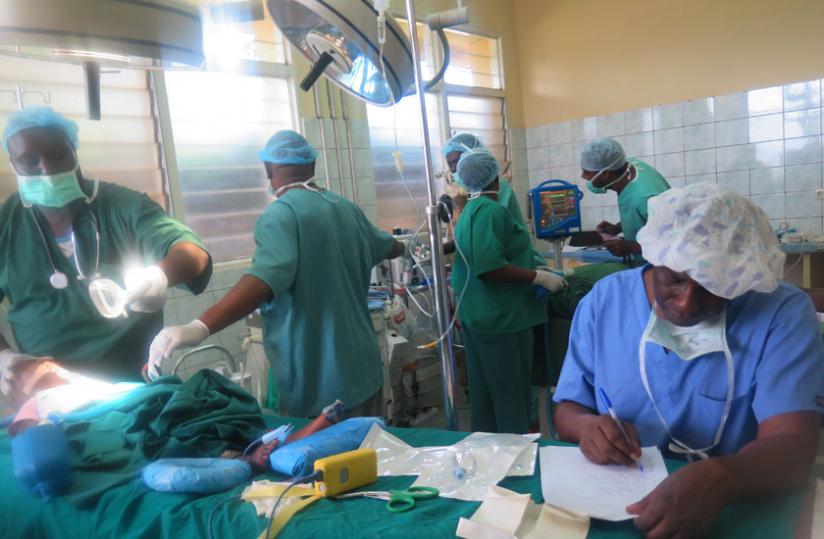A 65-year-old man who underwent cleft lip operation yesterday, has vowed to change his name linked to his former deformity.


A 65-year-old man who underwent cleft lip operation yesterday, has vowed to change his name linked to his former deformity.
Fidel Kabali, whose second name means a person with a cleft-lip in Kinyarwanda, told The New Times that he wanted a name that suited his new looks.
NEW LOOKS: Fidel Kabali.
Kabali, a resident of Tabagwe Sector, Nyagatare District, was among the 46 beneficiaries of the ‘Help a Child Face Tomorrow (HCFT) Foundation’ free cleft lip operation conducted in Rwamagana hospital.
"I endured stigma due to the cleft-lip I was born with. But now I am a born-again, handsome man. Not even my parents saved me from the humiliation, they named me after the deformity (Kabali),” he said.
Cleft lip is the most common congenital deformity in the world. It occurs in approximately one in 750–1,000 live births.
"Here at the hospital, patients had nick-named me a ‘Turkey’ due to my protruding lips that made my looks terrible. One day my daughter told me other children ridicule her because of my looks. I always felt inferior in the community,” Kabali said.
The father of four said he would follow the legal procedures to change his name.
"I am no longer ‘Kabali’ (a cleft lipped person)…I have to change the name. You know, traditionally we share drinks, but because of the deformity, I was never allowed at the drinking pot. I was regarded an outcast.”
A cleft lip occurs when one side of the mouth and nose does not match the other. The goal of cleft lip surgery is to close the separation in the upper lip, creating a normal look.
Other people who talked to The New Times said they were overwhelmed by the success of the operations.
Loysia Mukamujawamariya, 29, another beneficiary, said she twice benefitted from the foundation because her daughter was also operated on.
"I was born with the deformity…unfortunately my child inherited it. But what makes me happy is that both of us were successfully operated on. I thank God for healing us,” she said.
According to medics, five per cent of cleft conditions are genetical.
The week-long surgeries by a team of highly specialised medics from ‘Help a Child FaceTomorrow’ Kenya, was led by Dr Meshach Ong’uti.
Dr Onguti, a Reconstructive/Maxillocial Surgeon and CEO/Co- founder of the charity organisation, said all the surgeries were carried out successfully.
He said free surgeries were mainly for children with cleft-lip and cleft palate who are at least three months old and in good health.
"The surgery is important to children with the impairment. We operate and train the local staff at the same time.”
He said cases of cleft lips are many but most parents do not come forward and prefer to keep the children in isolation because of the stigma associated with it.
Onguti noted that the patients’ turn-up was very low and challenged local leaders to mobilise people with the deformity to come for the free surgery.
"We offer what would be a very expensive surgery for free…under normal circumstance, each operation would cost between $4000 and $5000,” he said.
"This is a very high level expertise team we bring from far. The local population should maximise this opportunity,” he said.
HCFT operates in Kenya, Uganda, Rwanda, Somalia, Cameroon, Bangladesh and Malawi.
Dr Onguti said not a single country from their area of operation financed the activities of the Foundation.
"The Foundation pays everything right from air tickets of the medics, to meals of patients receiving the operations. We do a lot without any external financial support,” he said.


